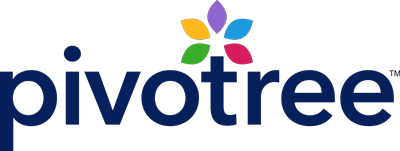When it comes to making online stores easy to navigate, intuitive product search is an essential tool in a merchant’s toolbox. Endeca, or Oracle Commerce Guided Search, was a leader in this area; however, the platform’s lack of certain capabilities has led companies to consider a replacement.
Without a roadmap for continued innovation for Endeca, commerce leaders who want to develop more capabilities with insight engines, AI, and advanced analytics may wish to look for a better fit that aligns with their long-term digital strategy.
In this blog post, we will cover five areas to consider regarding migrating from Endeca to Coveo for Commerce.
#1: Artificial Intelligence and Machine Learning
Today’s consumers want an eCommerce experience that is navigable, compelling, and personalized to their preferences. A great personalized experience starts with search, but it also requires much more – including relevant recommendations for items and content for all customers across every touchpoint.
To meet this demand, many merchants are turning to emerging technology like AI and machine learning to improve eCommerce experiences through personalized search results and recommendations;
Endeca’s Challenges: Endeca does not have AI or Machine Learning capabilities, which means there is no way to leverage reports to continuously and effectively optimize results (e.g., A/B testing and search conversions).
Coveo Advantages: Coveo’s main area of expertise is AI and Machine Learning. The platform is built around the understanding that AI can free your web and marketing team from the manual, hands-on work of segmentation and personalization rules without compromising the user experience.
Natural Language Processing is incorporated to understand customer intent and deliver more accurate and personalized search results. Merchandising optimization is done automatically and with reporting, freeing up time for merchandisers to concentrate on other areas of importance.
It’s also important to note that the platform incorporates a balance between presenting the customer with the most relevant products and promoting the products the company has prioritized for sale – personalization should serve both customer needs and business outcomes.
Good to know: Coveo uses AI in its capabilities for cross-selling and upselling. This has been shown to increase profits (not just sales) from higher conversions, lower cost to serve, and increased loyalty.
#2: Business User Tools
Regardless of how powerful a software system is, if it’s not accepted and embraced by its intended users, it will fail despite its efficiencies. That’s why business user tools are a critical part of a software evaluation.
Endeca’s Challenges: Endeca’s business tools are limited and lack flexibility. They do not support merchandising managers with the tools they need on their own skill level, which becomes a barrier for teams that are trying to avoid heavy reliance on developers.
Coveo Advantages: Coveo users have the peace of mind that all of their products are searchable and that the most relevant products (and product information) for each customer will be presented – without the need to manually build rules for every possible promotion or product. This is accomplished using the platform’s Automatic Relevance Tuning (ART), which uses data from other shoppers’ behavior to understand what will be the most ideal products to show to each customer, whether through the search bar, a product recommendation, cross-sell, or upsell. Again, this employs the personalization driven by Machine Learning.
Good to know: Some of Coveo’s key tools include out-of-the-box reporting, model testing, and proactive alerts so that administering the solution and customizing it to optimize performance is easily accomplished with low to no development requirements.
#3: Reporting
Reporting is perhaps the lifeblood of search optimization. It’s the only clear way to determine if your search results are keeping pace with your overall strategies.
Endeca’s Challenges: Endeca does not include reporting, and therefore business users cannot evaluate the performance of the overall search platform. As with many of its limitations, a lack of reporting inhibits users from making effective improvements to search result performance.
Coveo Advantages: When it comes to reporting, Coveo is highly analytical and has many ways of viewing reports. Business users can control many aspects of its reporting features without help from developers. They can set up users who have access to reports, check the health of reports, and filter reports with advanced conditions to check activity in real-time.
Good to know: The visit browser allows users to go granular and see what the actual search journey looks like. Users have found they can leverage Coveo’s reporting capabilities to find gaps in their content strategy, for example, identifying products, certain features, or higher selling bundles that should be added.
#4: Indexing Performance
Online shoppers can be eager to click and convert, but they’re also quick to bounce if their exacting expectations aren’t met. Our competitive commerce environment raises the stakes when it comes to search indexing – a crucial aspect of meeting the shoppers’ needs.
Endeca’s Challenges: For Endeca, the intake of data is known to be slow and cumbersome. A very specific and high skill level is needed for customizations, which can be a burdensome expense for companies, especially as they look to make investments in other resources that can advance their digital strategies.
Coveo Advantages: Coveo is a cloud-native, multi-tenant, SaaS platform, which allows for faster indexing speed. Specifically, the average Coveo installation indexes 500,000 items per hour for products. However, the index can be pushed to index more than 1 million items per hour.
A key advantage is that Coveo creates a single source of truth by bringing your data into one place with a unified and powerful index. The flexibility of Coveo index allows you to integrate different kinds of sources. It supports dozens of connectors: there are no limits to what Coveo’s engine can index.
In terms of configuration, the platform has a large library of pre-built connectors, meaning the indexing process is simpler and you don’t have to build the connectors yourself. If a connector does not exist, Coveo provides the toolset to enable your content from various sources such as public websites and secure apps to be pushed to the index.
Good to know: Coveo can securely index from both cloud and on-premises. Configuration is done quickly through a web-based user interface.
A typical production index can process up to 300,000 items per hour, while a typical sandbox index can process no more than 10,000 items per hour on average. Catalog items, being a simple dictionary of taxonomy, are usually much smaller than a large PDF or rich text document, and can, therefore, be indexed faster.
#5: Multilingual Support
For many companies, digital expansion growth strategies include breaking into new markets. In fact, a recent survey of Pivotree customers found that 36 percent of respondents indicated that Geographic Expansion will be their primary growth strategy in the next 3 to 5 years.
Endeca’s Challenges: When it comes to multilingual support, Endeca has fallen behind. The software’s language limitations are something multinational companies find hard to cope with, as will companies that wish to expand their geographic presence in the future. Users are forced to create a new index for each language, which is time-consuming, requires extra development, and creates deeper indexing performance issues.
Coveo Advantages: The Coveo platform is multilingual and can index content written in 43 languages. Its Machine Learning features and JavaScript Search Framework user interfaces also support a wide array of languages.
Good to know: The extensive list of supported languages can be reviewed here.
In Conclusion
With a nearly endless array of options at their fingertips, shoppers’ expectations for a frictionless and personalized eCommerce experience are at an all-time high. Merchants need commerce solutions that support the push for digital growth.
Deciding to migrate an integral part of your commerce site to a new solution is not easy, but Coveo should be considered for its ability to deliver relevant search results and product and content recommendations based on their individual commerce journey.
Pivotree can help you determine what platform best aligns with your business needs – both now and in the future. In an AI-based digital economy, a focus on solutions that enable your company to remain competitive and future-driven should be prioritized.
To learn more about implementing Coveo for Commerce:
Report — Delivering Frictionless Commerce
Want to know what 3,800 consumers think about frictionless experiences? In this 2021 research study report, we dive into the six dimensions of frictionless commerce and show businesses how they can optimize the digital customer experience.

